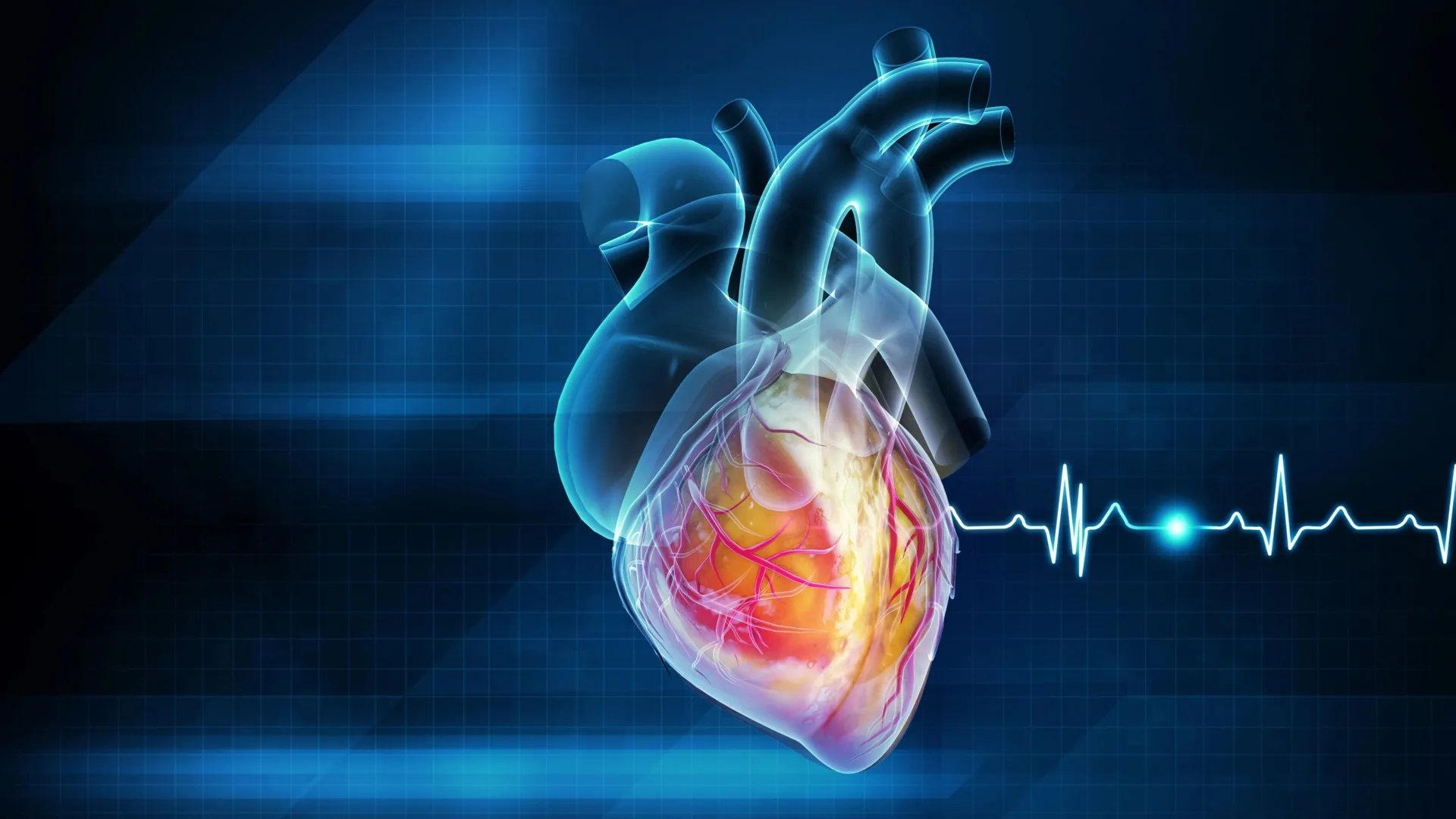#cardiovascular health
#cardiovascular health
[ follow ]
#cardiovascular-health #heart-disease #exercise #fitness #blood-pressure #public-health #hypertension #metabolism
fromFortune Well
3 days agoFeeling stressed? Make time to share a meal with others | Fortune Well
However, new research suggests that sharing a meal with those we care about, like family or colleagues, may lower our stress levels, improve our workday, and help us make healthier food choices. In a report released this week, the American Heart Association (AHA), which surveyed 1,000 U.S. adults about their dining habits, found that almost all parents (91%) say their family is less stressed when they share meals together.
Public health
fromScienceDaily
1 week agoTea can improve your health and longevity, but how you drink it matters
Drinking tea, particularly green tea, is linked to better heart health, improved metabolism, and lower risks of chronic diseases like diabetes and cancer. It may also help protect the brain and preserve muscle strength as people age. However, processed teas-such as bottled and bubble varieties-often contain sugars and additives that may cancel out these benefits. Moderation and choosing freshly brewed tea appear key.
Food & drink
fromInverse
1 month agoThe Long-Term Effects Of A Sleep Disorder That Often Goes Unnoticed
Sleep apnea is one of the most common - and most overlooked - sleep disorders. Millions of people live with it for years without realizing their nightly rest is being repeatedly disrupted, quietly affecting their health in ways that extend far beyond sleep. Once you know what to look for, the signs may sound familiar: getting a full eight hours yet waking up exhausted, struggling with daytime fatigue, irritability, and difficulty concentrating.
Medicine
fromInsideHook
1 month agoTurns Out Laughing Can Be Good for Your Health
Writing at the Associated Press, Albert Stumm explored the growing evidence that the physical act of laughing has health benefits. University of Pennsylvania cardiologist Dr. Michael Miller offered Stumm advice where he compared laughter to exercise: "Belly laugh at least two to five days a week." Dr. Miller went on to discuss the role that laughter can play in deploying endorphins, which can reduce the risk of heart disease and act to reduce pain.
Health
fromLos Angeles Times
1 month agoAfter the L.A. fires, heart attacks and strange blood test results spiked
In the first 90 days after the Palisades and Eaton fires erupted in January, the caseload at Cedars-Sinai Medical Center's emergency room looked different from the norm. There were 46% more visits for heart attacks than typically occured during the same time period over the previous seven years. Visits for respiratory illnesses increased 24%. And unusual blood test results increased 118%.
Public health
Health
fromBusiness Insider
2 months agoGrip strength is linked to longevity. Here are 2 easy exercises to boost yours.
Greater grip strength predicts longer life and reduced risk of cardiovascular disease, diabetes, and cognitive decline while reflecting overall physical activity and metabolic health.
fromwww.theguardian.com
2 months agoRoot canal treatment could significantly lower blood sugar levels, study suggests
If a looming root canal treatment is putting a dampener on the week, take heart: having the procedure can drive health benefits that are felt throughout the body, according to research. Patients who were successfully treated for root canal infections saw their blood sugar levels fall significantly over two years, suggesting that ridding the body of the problematic bacteria could help protect against type 2 diabetes.
Public health
fromThe New Yorker
2 months agoThe Hidden Devastation of Hurricanes
In August, 2005, Anand Irimpen, a cardiologist and a professor at Tulane University, evacuated New Orleans during the approach of Hurricane Katrina. He and his family watched it make landfall from a hotel room in Dallas. "The storm passed by and I was ready to go home," Irimpen told me. "But then my wife said, 'The levees broke. We can't go back.'" The damage to New Orleans lingered; they ended up staying in Dallas for months.
Public health
Medicine
fromPinkNews | Latest lesbian, gay, bi and trans news | LGBTQ+ news
3 months agoFascinating study highlights how hormones affirm trans women at a molecular level
Feminising hormone replacement therapy shifts blood protein profiles in trans women toward cisgender female patterns and improves immune and cardiovascular biomarkers.
Alternative medicine
fromAlternative Medicine Magazine
4 months agoLowering Blood Pressure Naturally: Diet Can Control Resistant Hypertension
Lifestyle modifications—regular aerobic exercise, DASH diet adherence, and weight loss—can significantly reduce blood pressure in treatment-resistant hypertension and improve cardiovascular health.
Alternative medicine
fromNatural Health News
4 months agoThe world is turning to D.I.Y. HOLISTIC HEALTH METRICS because they're more effective than scripts the MD QUACKS sling
Life's Simple 7, a seven-metric lifestyle and health score, predicts risks for cardiovascular disease, dementia, cancer, diabetes, kidney disease, and overall longevity.
Running
fromBusiness Insider
4 months agoI took a VO2 max test while sprinting on a treadmill. It taught me how fast I should run to burn fat and build muscle.
Active metabolic assessment measuring VO2 max and heart rate identifies personalized training zones and shows a need to increase training intensity to improve cardiovascular health.
Alternative medicine
fromAlternative Medicine Magazine
4 months agoMediterranean Diet: Is the Mediterranean Diet Good for Heart Health?
A Mediterranean-style diet substantially reduces cardiovascular disease risk through plant-based foods, healthy fats, fiber, antioxidants, blood pressure reduction, and portion control.
fromwww.npr.org
2 years agoA study of this champion's heart helped prove the benefits of exercise
Clarence DeMar would train for races by running to and from his job at a print shop in Boston, up to 14 miles a day, often carrying a clean shirt. His hard work paid off. He won the 1911 Boston Marathon and competed in the next year's Olympics. But all that running raised eyebrows. At the time, many people and medical experts thought prolonged exercise was dangerous.
Running
fromwww.theguardian.com
5 months agoPotassium-rich diet may cut risk of heart failure by 24%, study suggests
The senior study author, Prof Henning Bundgaard, a professor at Copenhagen University hospital, said: The human body evolved on a potassium-rich, sodium-poor diet when we were born and raised on the savannah and eating [fruit and vegetables]. We [now] tend to go to [a] modern diet that is processed foods and, the more processed, we see more and more sodium in the food and less potassium, meaning that the ratio between the two has changed from 10:1 to 1:2 a dramatic change.
Medicine
fromBusiness Insider
6 months agoHeart disease is the leading cause of death. A cardiologist takes 3 supplements to lower his risk.
Dr. Dmitry Yaranov emphasizes the importance of supplements in supporting heart health, particularly omega-3, magnesium, and vitamin D, while also highlighting healthy lifestyle choices.
Health
Artificial intelligence
fromSilicon Canals
8 months agoFinnish medtech AIATELLA raises 2M: Co-founder Jack Parker on using AI for preventative cardiovascular screening and easing radiologist burnout - Silicon Canals
AIATELLA secured €2M for developing AI-powered cardiovascular imaging, aiming to transform radiology from reactive to preventative care.
Alternative medicine
fromNatural Health News
8 months agoGut Microbiome Pattern Helps Predict Heart Attack Risk in Heart Disease Patients
The gut microbiome is a critical predictor of heart attack risk.
An intestinal microbiota-based risk score can identify high-risk CHD patients before adverse events occur.
fromBusiness Insider
8 months agoBeyonce and Sabrina Carpenter's choreographer shares how she gets her clients fit in just 12 weeks
Jasmine "JB" Badie emphasizes the importance of rigorous cardio training for performers, stating that the efforts pay off in delivering great shows for audiences.
Exercise
[ Load more ]















